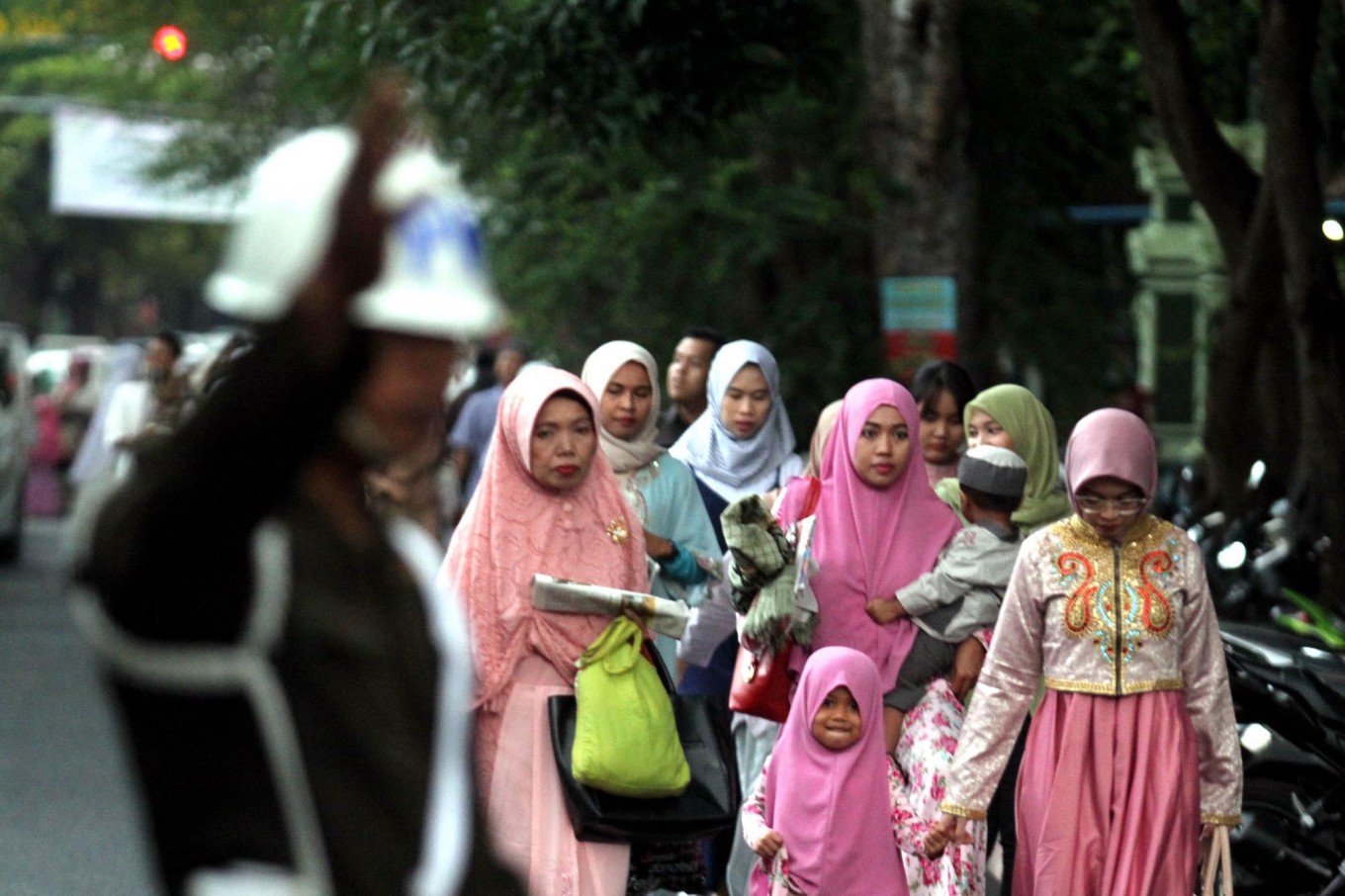Popular Reads
Top Results
Can't find what you're looking for?
View all search resultsPopular Reads
Top Results
Can't find what you're looking for?
View all search resultsIndonesians abroad celebrate lonely Idul Fitri
Far from their families, this Idul Fitri, Indonesians abroad are also deprived of the opportunity to celebrate with fellow Indonesians and the wider Muslim community - making for an Idul Fitri without gatherings, without mass prayers and without festivities.
Change text size
Gift Premium Articles
to Anyone
I
ndonesian doctoral student Rahmandhika Firdauzha, 26, is no stranger to spending Idul Fitri far from home, having spent the past four years in Hsinchu, Taiwan, where he studies at the National Chiao Tung University.
This year’s holiday, however, was doubly lonely.
“I miss celebrating Idul Fitri with my family. But even though, for the past four years, we did not celebrate together, at least I could still gather with my fellow Muslims here and celebrate with friends from around the world,” he told The Jakarta Post on Friday. “That was before the pandemic.”
Rahmandhika is just one of many Indonesians abroad who are celebrating Idul Fitri in isolation in the wake of the COVID-19 pandemic that has infected more than 5.2 million people and killed over 340,000 worldwide.
Besides being far from their friends and family, this Idul Fitri they are also deprived of the opportunity to celebrate with fellow Indonesians and the wider Muslim community – an Idul Fitri without gatherings, without mass prayers and without festivities unlike in past years.
Rahmandhika said that his university used to allow Idul Fitri mass prayers at one of the campus’s yards.
“But now, even the prayer rooms are closed,” he said. “All we have to look forward to is conducting video calls with our families and friends.”
For Abdul Fattah, a 25-year-old undergraduate student at Al-Azhar University in Cairo, Idul Fitri used to be a time of festivities -- with meals and various celebrations hosted by the Indonesian Embassy in Cairo.
In Egypt, COVID-19 has infected more than 15,700 people and killed around 700. The Egyptian government has scrapped all religious events, including Idul Fitri mass prayers.
“On the day of Idul Fitri, we [Indonesian students] used to be picked up by bus [to celebrate Idul Fitri together at the embassy]. This year, we will be celebrating Idul Fitri at our apartments,” Abdul said.
Sri Een Hartatik, a 35-year-old Indonesian worker in Tsu-city in Japan’s Mie prefecture, is expecting a similarly subdued holiday.
In the past five Ramadans, she would break the fast together with her colleagues at Mie Mosque during Ramadan.
“The Indonesian community [in Mie] used to provide food for the iftar once a week,” she told the Post on Saturday, referring to the breaking-of-the-fast meal.
Small joys – such as observing Idul Fitri prayers with a multinational Muslim community in Japan, walking or cycling with her friends to the mosque and participating in halal bi halal (post-Ramadan gatherings) – that used to be a balm for her homesickness are no longer available to her.
Sri said that, in Mie, iftar activities had been scrapped, as had tarawih (evening Ramadan prayers). Halal bi halal is also not allowed, while Idul Fitri prayers would still be held in the mosque, but only for men.
Despite the limitations, Sri said she tried to look on the bright side.
“First and foremost, we must be healthy now. Next year, we can celebrate Idul Fitri again in a normal situation like before,” she said.
Rahmandhika echoed that sentiment, saying the situation had taught him to be more grateful for God’s blessing.
“Just by one comfort being taken away, such as the comfort of gathering, we already feel so miserable,” he said. “Maybe it’s just the time for us to be more grateful, by maintaining our health and obeying health protocols, so that we can feel such comforts again soon.”










